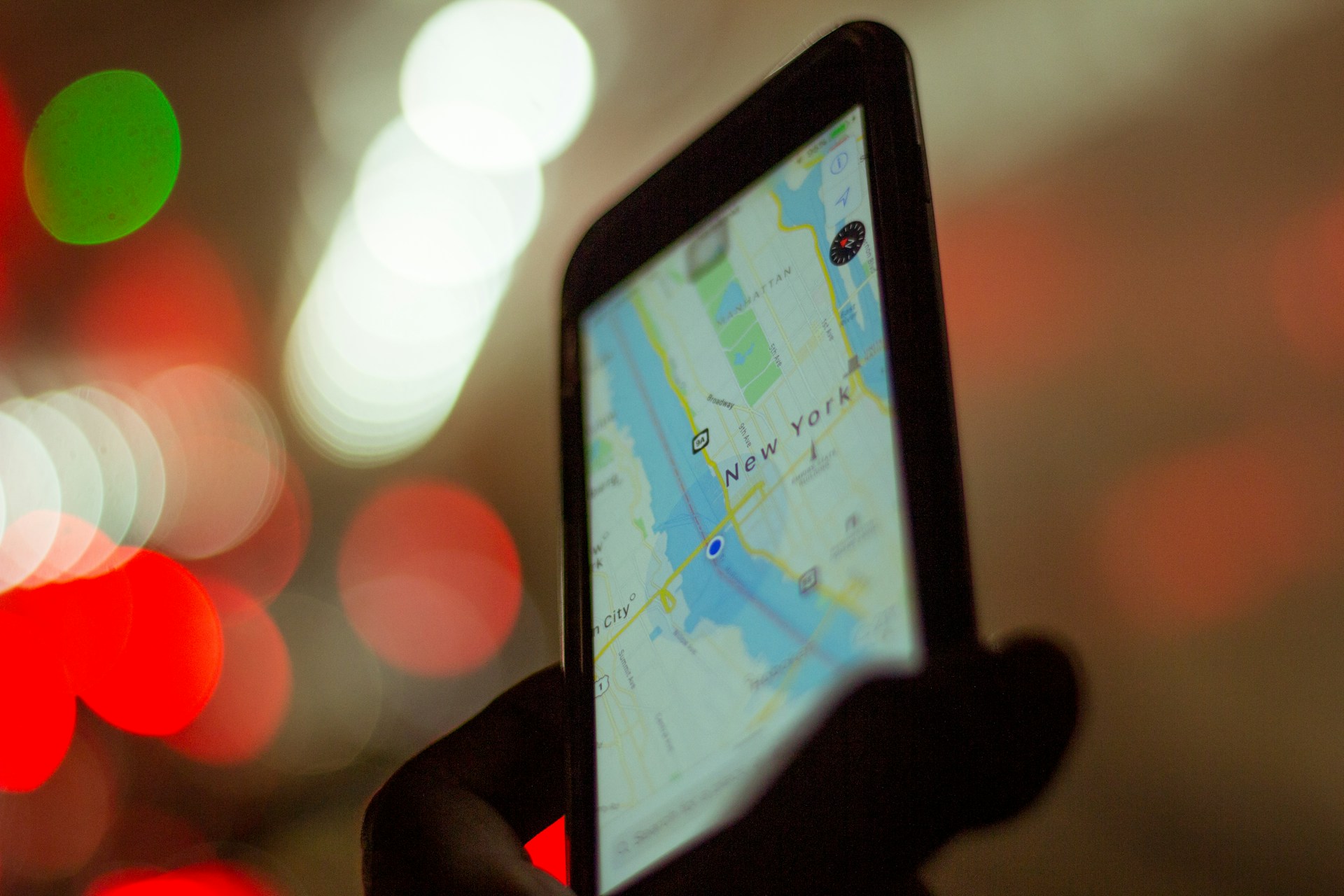In 2023, travel apps played an essential role in the journeys of over 850 million people, underscoring their significant impact on modern travel experiences. The travel industry has always been dynamic, driven by ever-changing consumer behaviors, new technologies, and global trends. In 2024, travel apps have become crucial tools for travelers, helping them plan, book, and enhance their journeys from start to finish. As a result, travel app mobile marketing strategies must continuously evolve to capture users’ attention, stand out in a crowded marketplace, and drive engagement.
So, what are the key marketing trends shaping the future of travel apps? How will they affect the app mobile marketing ecosystem? Let’s explore the top five emerging trends redefining how travel brands reach and engage with their audiences.
1. Personalization through Artificial Intelligence (AI)
A significant majority, 82%, of marketing professionals are convinced that integrating artificial intelligence into their strategies will enhance customer experience. Additionally, 64% of marketers believe that artificial intelligence contributes to the creation of more effective content, experiences, and offers.
Personalization is no longer just a buzzword in marketing—it’s now necessary. Travel app users expect experiences tailored to their unique preferences, from accommodation suggestions to itinerary recommendations. AI is critical in making this happen by analyzing user data and delivering personalized content and offers.
Why it matters:
- Customized travel experiences: AI-powered algorithms analyze a user’s travel history, preferences, and behaviors to suggest tailored itineraries, accommodations, and local experiences. For example, if a user frequently books beach vacations, the app can push notifications about upcoming beach destinations or exclusive resort deals.
- Targeted offers: With AI, travel apps can offer real-time, location-based promotions. Imagine landing in Paris and receiving a personalized message offering a discount on nearby restaurants or tours.
- Increased engagement: Travel apps that create a more relevant and personalized experience are more likely to retain users, improve app usage, and drive conversions.
Travel apps that effectively leverage AI already see higher customer satisfaction and loyalty, as users feel the app truly “understands” their needs.
Photo by Enrique Alarcon on Unsplash
2. Influencer partnerships for authentic reach
Approximately 75% of consumers turn to social media for advice before making important purchases. Influencer marketing has exploded recently, but in 2024, it’s evolving into a more strategic tool for travel apps. Influencers are no longer just a means for exposure—they’re becoming essential partners in building authentic connections with potential customers.
Why it matters:
- Credible recommendations: Nowadays, people trust real experiences more than traditional advertising. Travel influencers often share their journeys using specific travel apps, providing genuine reviews and endorsements that resonate with followers.
- Niche audience targeting: Partnering with influencers who align with your app’s target audience—solo travelers, luxury seekers, or adventure enthusiasts—can provide highly targeted marketing. Influencers act as trusted voices, helping travel apps cut through the noise and reach niche audiences more effectively.
- User-Generated Content (UGC): Encouraging influencers to share their experiences generates a wealth of UGC, which marketers can repurpose in the app’s social media, emails, and advertisements. UGC fosters authenticity, which is essential for building trust in a highly competitive market.
Brands incorporating influencer partnerships into their marketing strategy can expect greater reach, more authentic engagement, and improved app downloads.
3. Sustainability as a selling point
Sustainability is considered one of the top four key purchase criteria by 50% of consumers when buying products or services. Sustainability has moved from a nice-to-have to a must-have for many travelers. As consumers become more eco-conscious, they seek travel apps promoting responsible travel options. Marketing sustainability is not just about showcasing green hotels—it’s about offering tools and insights to help users make sustainable travel choices.
Why it matters:
- Eco-friendly travel options: Travel apps increasingly showcase eco-conscious accommodation, transportation, and tour options. Highlighting these sustainable alternatives in your marketing campaigns helps align your brand with travelers who prioritize minimizing their carbon footprint.
- Carbon tracking features: Some apps now include features allowing users to track the carbon emissions associated with their trips. Promoting these tools can position your app as a responsible travel companion, appealing to the growing segment of eco-conscious consumers.
- CSR campaigns: Travel apps that actively support local communities and conservation efforts can market these initiatives as part of their brand ethos. Whether donating a portion of booking fees to environmental causes or promoting sustainable tourism in developing regions, these efforts can build loyalty among conscious consumers.
Travel apps that tap into the sustainability movement will attract more users and foster brand loyalty by aligning with the values of modern travelers.
Photo by Clem Onojeghuo on Unsplash
4. In-app gamification for user engagement
Did you know people share gamified content 12 times more often than non-gamified content? Who doesn’t enjoy a little game now and then? Gamification—integrating game-like elements into non-gaming contexts—has emerged as an exciting way for travel apps to keep users engaged, foster brand loyalty, and encourage repeat bookings.
Why it matters:
- Rewards and badges: Users can earn rewards, badges, or points for completing specific actions within the app, such as booking a trip, writing a review, or referring friends. These incentives keep users engaged and motivate them to continue interacting with the app.
- Challenges and competitions: Travel apps can run themed challenges (e.g., “Complete 5 eco-friendly trips this year!”) where users compete with each other or themselves to earn rewards. It taps into users’ competitive spirit and adds an element of fun to the experience.
- Social sharing: Gamification encourages users to share their achievements with friends on social media, giving your app valuable exposure. Imagine users proudly posting that they’ve unlocked a “World Explorer” badge after visiting 10 countries!
Gamification is a proven strategy for driving engagement, fostering loyalty, and creating an enjoyable app experience that keeps users returning for more.

5. Augmented Reality (AR) for immersive experiences
Approximately 90% of Generation Z customers are eager to explore augmented reality (AR) shopping experiences. To truly resonate with this demographic and a broad spectrum of tech aficionados, it’s crucial to prioritize AR in your marketing strategies. While AR might seem futuristic, it’s quickly becoming a reality in travel app mobile marketing. This technology provides users with immersive, interactive experiences that make their travel journeys more engaging and informative.
Why it matters:
- Pre-trip exploration: AR allows users to explore a destination before they book virtually. Imagine walking through the streets of Rome or touring inside a hotel room in Bali—all from your smartphone. Travel apps that offer this feature give users confidence in their booking decisions.
- On-site enhancements: Once at their destination, travelers can use AR to enhance their experience. For example, users can point their phones at a landmark to receive historical information or discover hidden gems like nearby restaurants or activities.
- Interactive marketing campaigns: AR isn’t just for in-app experiences—it can also integrate into your marketing campaigns. Create interactive ads where users can engage with a destination in a fun and immersive way, making your app stand out in a crowded digital landscape.
AR opens up endless possibilities for travel apps to provide value beyond just bookings. It helps users make more informed decisions and stay engaged during their trips, and it adds an element of adventure and surprise.
Conclusion: Staying ahead in the ever-evolving travel app mobile marketing
As the travel industry evolves, staying ahead of emerging trends is essential for maintaining a competitive edge. Personalization through AI, influencer partnerships, sustainability, gamification, and AR are five of the most important trends reshaping the travel app mobile marketing landscape in 2024.
By incorporating these trends into your marketing strategies, your app will capture the attention of modern travelers and deliver experiences that keep them coming back. Whether through tailored recommendations, immersive technology, or eco-conscious travel options, the future of travel apps is full of opportunities to innovate and engage.
Ready to elevate your travel app marketing strategy? Start integrating these trends into your approach today to ensure your app stands out in the ever-competitive travel market.
Ready to boost your travel app’s visibility? Partner with AVOW to harness the power of mobile OEM advertising and reach millions of users where it matters most. Start driving app downloads and engagement today!

